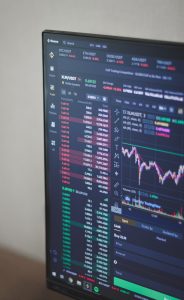The Risks of Forex Buying: How to Mitigate and Manage Them
Forex buying, also known as foreign exchange buying or currency trading, is a popular investment opportunity for individuals looking to profit from the fluctuations in currency exchange rates. It offers the potential for high returns, but it also comes with significant risks. In this article, we will explore some of the risks involved in forex buying and provide strategies to mitigate and manage them effectively.
1. Market Volatility:
One of the primary risks in forex buying is market volatility. Currency exchange rates can be highly volatile, influenced by various economic, political, and social factors. Sudden changes in economic indicators, geopolitical events, or even rumors can cause substantial fluctuations in currency values. To mitigate this risk, it is crucial to stay informed about global economic news, monitor market trends, and use technical analysis tools to identify potential entry and exit points.
2. Leverage and Margin Trading:
Forex trading often involves the use of leverage, which allows traders to control a larger position with a smaller amount of capital. While leverage can amplify potential profits, it also increases the risk of significant losses. It is essential to understand the concept of leverage thoroughly before engaging in forex buying and use it judiciously. Additionally, margin trading, which allows traders to borrow funds to increase their trading capital, can further amplify risks. Traders should always have a clear understanding of the margin requirements and carefully manage their margin positions to avoid overexposure.
3. Operational Risks:
Operational risks refer to risks associated with the execution of trades, such as technological failures, internet connection issues, or broker-related problems. These risks can lead to missed trading opportunities, delayed executions, or even financial losses. To mitigate operational risks, traders should choose reputable brokers with a reliable trading platform, robust customer support, and redundant systems. It is also advisable to have backup internet connections and use stop-loss orders to limit potential losses in case of unexpected technical issues.
4. Counterparty Risk:
Counterparty risk arises when a trading partner fails to fulfill their obligations, such as brokers going bankrupt or defaulting on trades. To mitigate this risk, traders should conduct thorough research before choosing a broker, ensuring they are regulated by a reputable authority and have a strong financial standing. It is also advisable to diversify funds across multiple brokers and regularly withdraw profits to minimize exposure.
5. Psychological Risks:
The forex market can be highly challenging and emotionally demanding. Traders often face psychological pressures such as fear, greed, and overconfidence, which can lead to impulsive and irrational trading decisions. To manage psychological risks, it is crucial to develop a trading plan with clear entry and exit criteria, set realistic profit targets, and adhere to strict risk management strategies. Regular self-assessment and maintaining a disciplined approach to trading are also essential to mitigate psychological risks.
6. Lack of Knowledge and Experience:
Lack of knowledge and experience is a significant risk factor for forex traders, especially for beginners. Without a solid understanding of fundamental and technical analysis, risk management, and trading strategies, traders are more likely to make mistakes and incur losses. To mitigate this risk, traders should invest time in educating themselves about the forex market, including attending educational seminars, reading books, and practicing on demo accounts before trading with real money. It is also helpful to seek guidance from experienced traders or enroll in forex trading courses.
In conclusion, forex buying offers lucrative opportunities for profit, but it also carries inherent risks. By understanding and effectively managing these risks, traders can increase their chances of success in the forex market. It is vital to stay informed, use appropriate risk management strategies, choose reputable brokers, and continuously develop knowledge and skills to navigate the complexities of forex trading. Remember, successful forex trading requires discipline, patience, and a long-term perspective.





